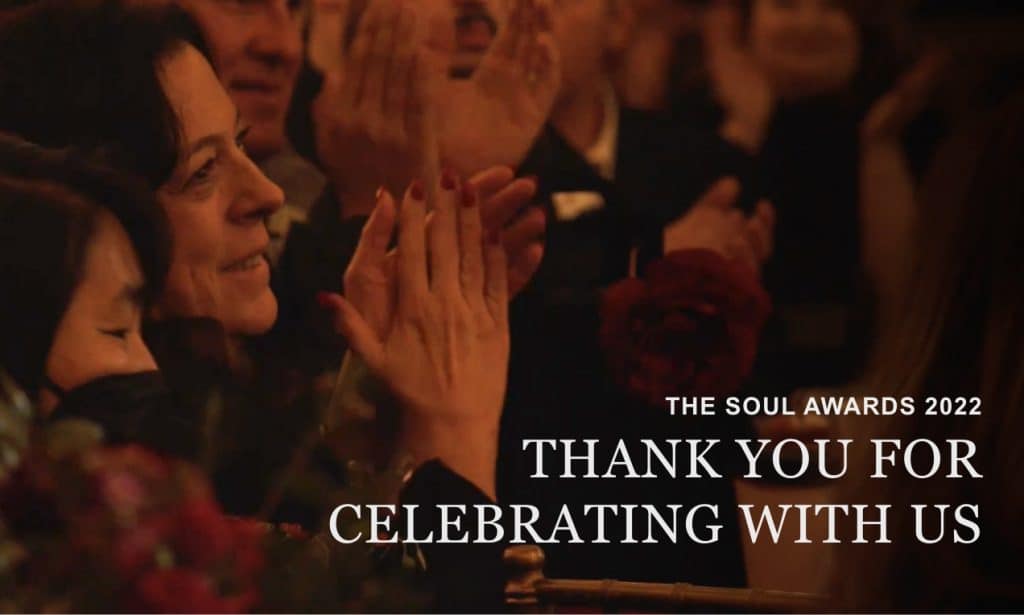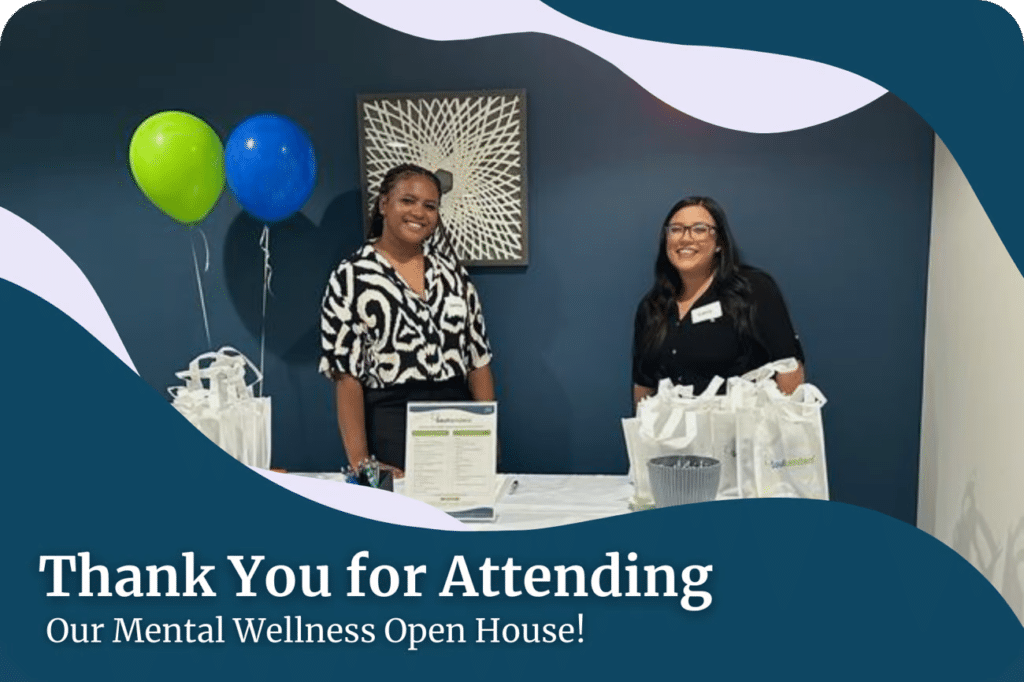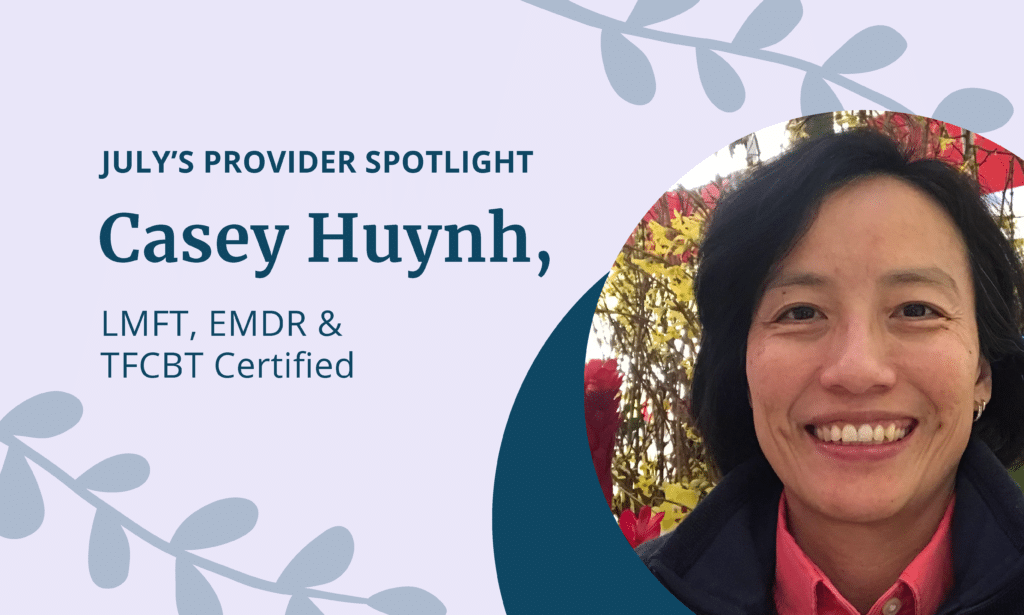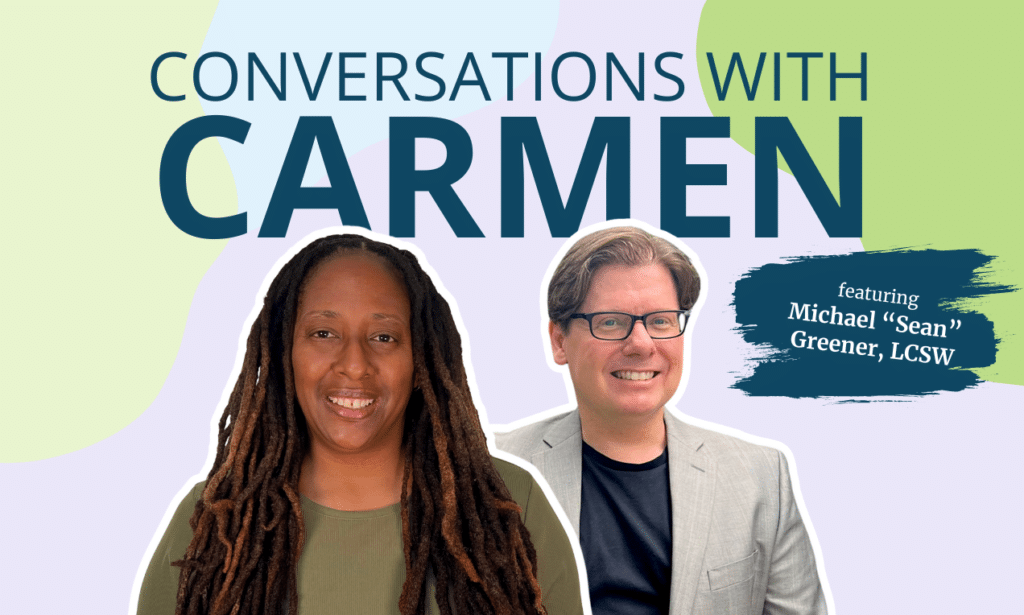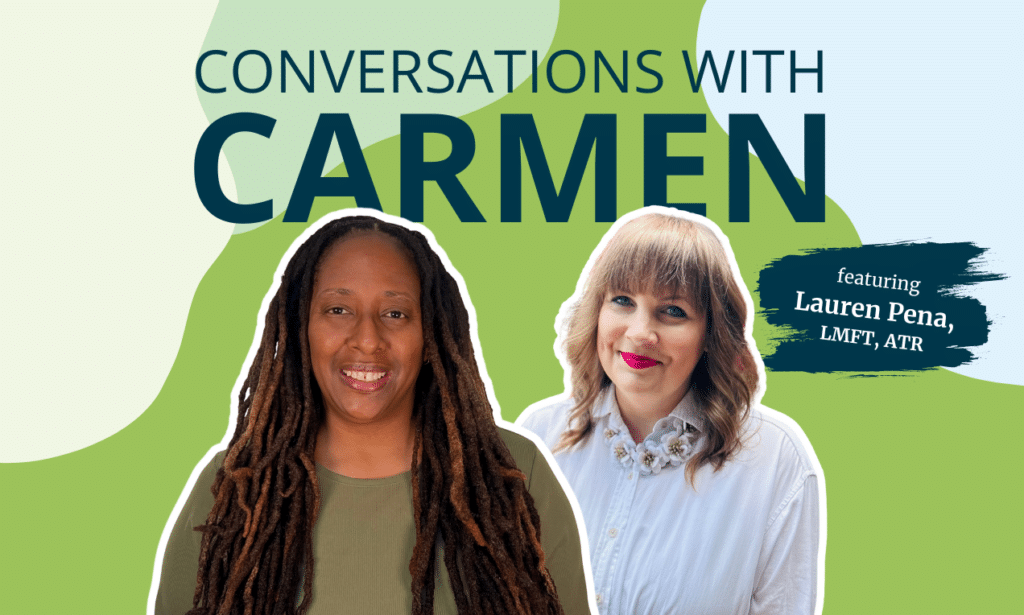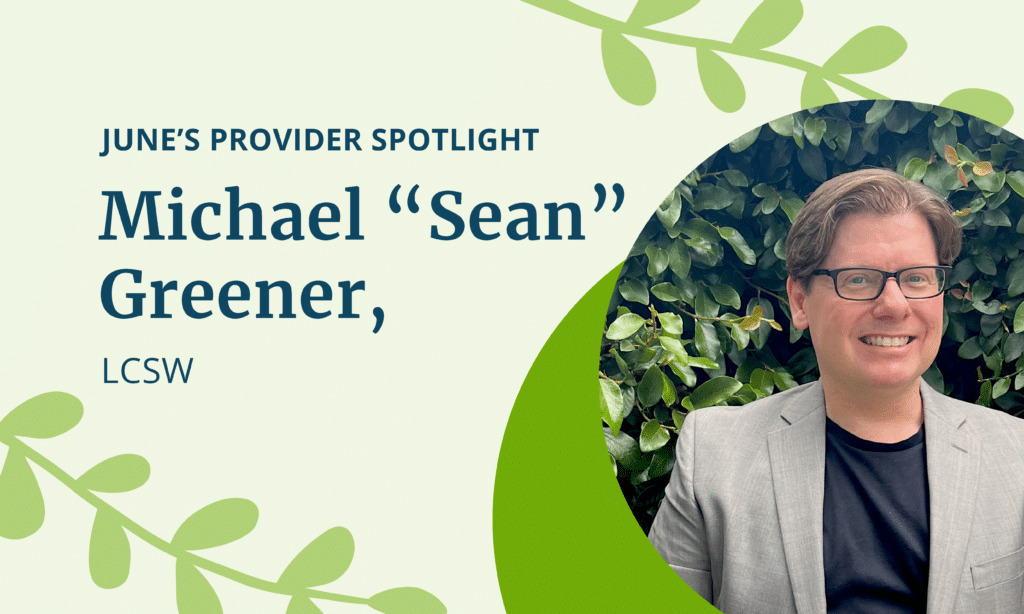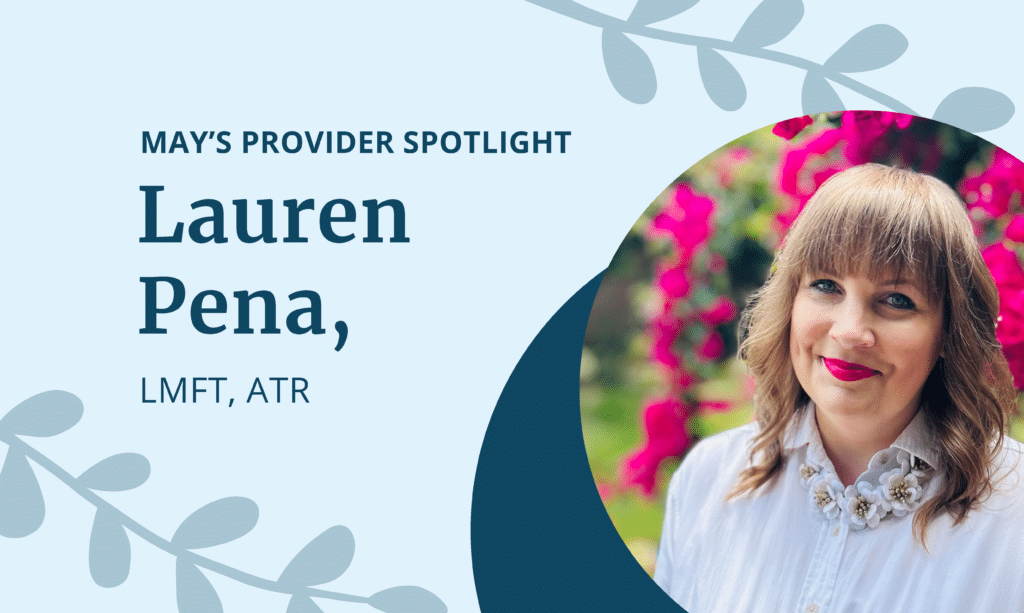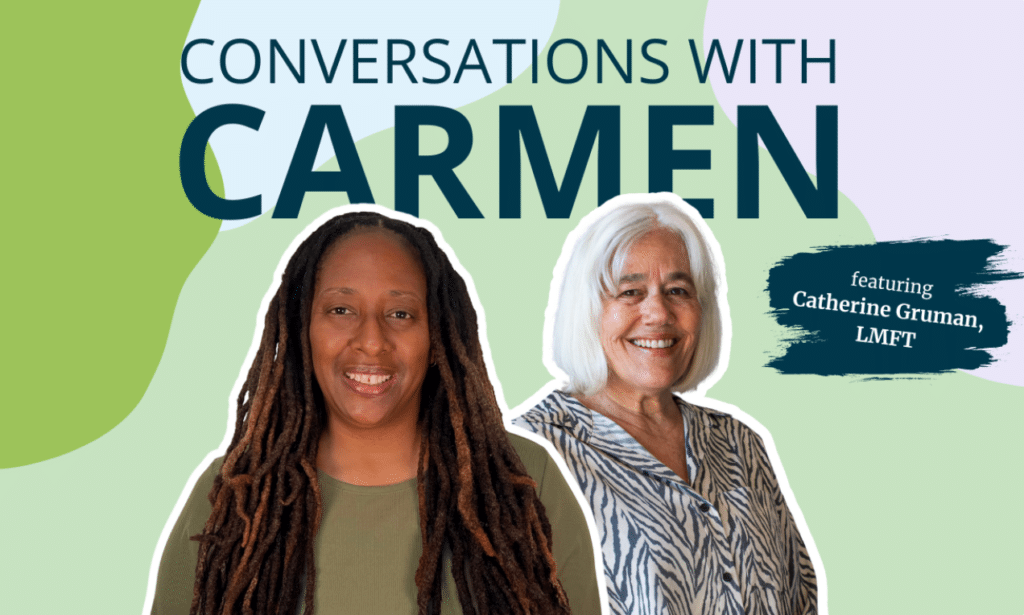
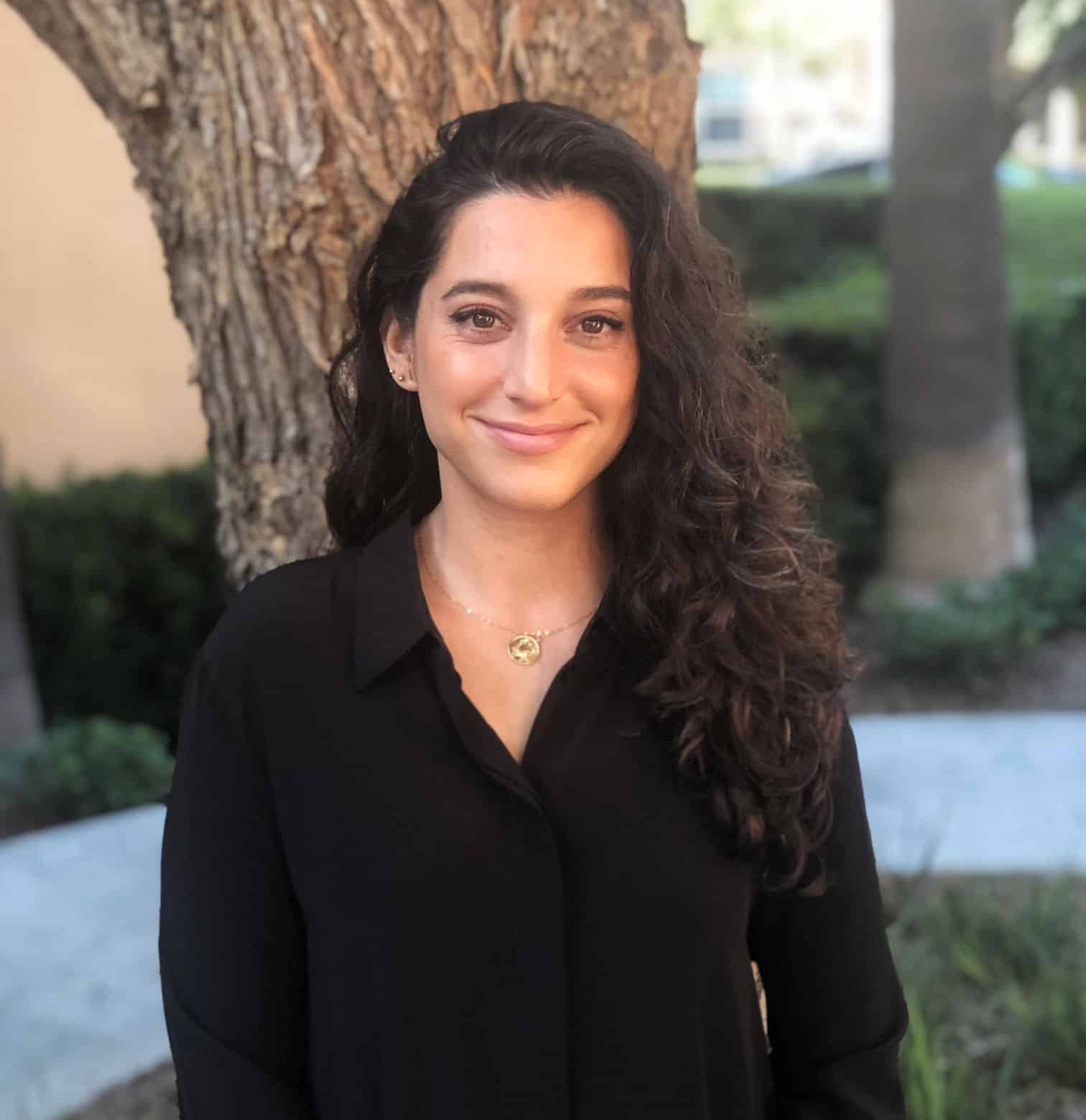
Every month we highlight a provider as our Provider Spotlight. This month’s Provider Spotlight was Sara Forouzan, LMFT. Each Provider Spotlight is interviewed by Dr. Carmen Majied for a segment called Conversations with Carmen.
In this segment, Carmen and Sara discuss Sara’s journey through life and how she arrived at Private Practice.
You shared that you are Iranian-American. You also shared that your parents are Iranian immigrants. Can you briefly touch on their shared journey?
My parents met in England and planned on living in Iran together when they got married. Like many other immigrants, their plans changed due to the Iranian Revolution. They could no longer go back to the country they grew up in as it had changed, so they moved to the United States.
You shared that you consider half of your upbringing to have taken place in Los Angeles and the other half in Orange County. What were the differences in living experiences?
Culturally the experiences were different. When we lived in L.A., it felt like we were a part of a small community as my family had friends who also lived and worked in the area. In Orange County, we felt a bit more isolated. My parents at the time were focused on finding somewhere to live that we could afford and go to good public schools nearby.
You mentioned that you were presented with ongoing opportunities to navigate various “firsts” (as a child of immigrant parents) in your household.
Can you please elaborate? What are a few examples of those “firsts”?
Really just the whole experience of growing up as an American child, in an American school system was something my parents couldn’t relate to. They grew up as a part of a community of people who had shared beliefs, customs, and values. It was strange for my brother and I to grow up around different types of people and cultures.
You referenced your keen interest in working with other adults who have immigrant parents as well. How do you navigate any countertransference and/or parallel processes you may experience?
This is something that comes up often for me. I try to keep myself in check by going to my own therapy, writing, and checking in with myself in between sessions. I think this will be something I consistently have to work on.
You shared that a key aspect of working with clients whose parents are immigrants is helping those individuals “navigate firsts”.
How do you go about doing so? How do you incorporate personal life experience, empathy, compassion as well as education into this process?
I am upfront with clients about the reasons I want to work with them. I share a bit about my identity and background which I think helps to explain how I can be useful for their journey. In graduate school the idea that we are meant to keep ourselves outside of session is emphasized. I have found that sharing parts of myself and being upfront about the place I am at in my own mental health journey has been an important part of connecting with clients.
After obtaining your Masters degree, you worked in Community Mental Health (specifically, the Wraparound Program) for the next 4-5 years. How did the CMH/WRAP experience impact your clinical foundation? What were some challenges and positive takeaways?
CMH/WRAP was an important learning experience for me. I learned how to collaborate with a team of mental health professionals to support families, I learned to work in the field, I strengthened my ability to navigate mental health crises and I was able to focus on children and teenagers as a population. CMH also required DMH paperwork, which ultimately was a solid foundation for learning how to document sessions.
You shared that you joined the Soultenders Provider Network in 2020 (spending the first 1-2 years building your private practice during the height of the pandemic). What was that experience like? In what ways were you possibly nudged outside of your comfort zone?
Joining Soultenders was a big shift for me. It was the first time I really had to make my own choices about what my day-to-day work would look like. I found at the beginning I kept thinking I needed to check in with other people when making decisions about my practice. My supervisor reminded me at the time “you can do whatever works best for you, this is your practice”. I had to keep reminding myself of that.
You shared that in 2023 your focus shifted to cultivating/crafting your clinical niches. What did that process entail? Did you initially feel confident or did you find that you had to build your sense of
self-efficacy?
This has been a challenging process. Trying to find a niche means being honest with myself about what I think I do best and how I can be most useful. These kinds of self-assessments can be uncomfortable, but have been helpful to building some more confidence and awareness about the work I do and what I have to offer others.
2023 was also a year during which you placed greater effort, intention and focus on increasing your online professional presence. How did you go about doing so? What were your specific marketing strategies?
The longest project was creating my website and generally trying to be concise about what therapy is. I find that clients have a hard time understanding exactly how therapy can be useful, so, that has been the thing that’s taken the most time as well as finding ways to clarify how therapy works.
One of your clinical niches is providing treatment services for adult children of immigrants. When and how did the transition from interest to a formal niche occur?
In terms of my own self-growth, I have always paid attention to what being a child of immigrants means for me and how I walk through the world. With social media I’ve been able to see that there are others like myself who would like to learn about how their experiences in their specific family unit has impacted their lives.
Another one of your clinical niches is providing EMDR therapy to a portion of your clients. What initially sparked your interest in exploring and pursuing EMDR as a specialty area?
I learned about EMDR as a client. For my own treatment, it has been powerful in terms of helping me process and move through some experiences I never really thought I’d be able to process.
Providing Sex Therapy (in the context of Couples Therapy) is a clinical niche of yours as well. How did you discover your interest in this specialized treatment area? What does the formal training and certification process look like?
I learned about this program through a friend and colleague. The program is a 2-year certification program (including lectures and supervision around Sex and Couples Therapy). It has been an incredible experience and I recommend any therapist who wants to work with couples to consider joining. The more I worked with clients the more I realized almost everyone comes into therapy with some sort of relationship issue. Most people feel they could benefit from a deeper understanding of how and why they make the choices they do in their relationships. I figured regardless of who I decided to work with the information could only be helpful.
You shared that you completed a 2-year AACAST (American Association of Couples and Sex Therapists) certification program. What did your certification process entail? How has the AACAST affiliation enhanced/positively impacted your practice?
The program is a 2-year program focusing on supervision and classes about sex and couples issues. I have found the AACAST community to be passionate about their work and always wanting to learn more. I hope that being tapped into this community will help me build more strength as a couples therapist.
Do you distinguish between self-care and leisure time? If so, how?
This is hard to distinguish, honestly. Ideally, I would spend more time consciously finding ways to recharge and nurture myself, but I do find a lot of the time self-care ends up looking like just taking a break from working.
Is there anything else that you would like to share about yourself, Sara?
Thank you, Carmen, for including me in your series!

